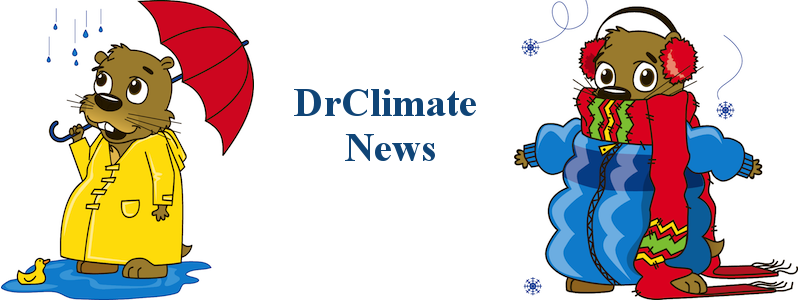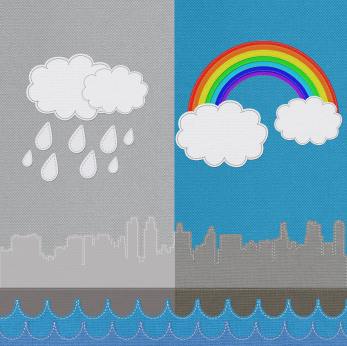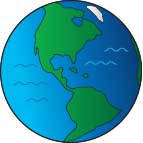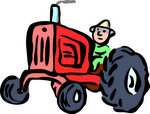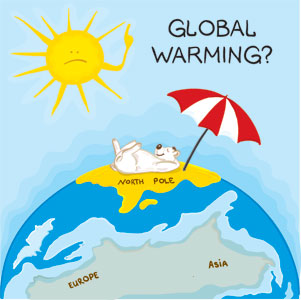Understanding Global Warming
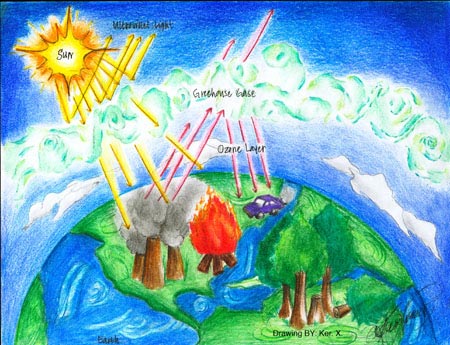
Global warming (as well as global cooling) refers specifically to any change in the global average surface temperature.
It happens when greenhouse gases (carbon dioxide, water vapor, nitrous oxide, and methane) trap heat and light from the sun in the earth’s atmosphere, which increases the temperature. This hurts many people, animals, and plants. Many cannot take the change, so they die.
What is the greenhouse effect?
The greenhouse effect is when the temperature rises because the sun’s heat and light is trapped in the earth’s atmosphere. This is like when heat is trapped in a car. On a very hot day, the car gets hotter when it is out in the parking lot. This is because the heat and light from the sun can get into the car, by going through the windows, but it can’t get back out. This is what the greenhouse effect does to the earth. The heat and light can get through the atmosphere, but it can’t get out. As a result, the temperature rises.
Sometimes the temperature can change in a way that helps us. The greenhouse effect makes the earth appropriate for people to live on. Without it, the earth would be freezing, or on the other hand it would be burning hot. It would be freezing at night because the sun would be down. We would not get the sun’s heat and light to make the night somewhat warm. During the day, especially during the summer, it would be burning because the sun would be up with no atmosphere to filter it, so people, plants, and animals would be exposed to all the light and heat.
Although the greenhouse effect makes the earth able to have people living on it, if there gets to be too many gases, the earth can get unusually warmer, and many plants, animals, and people will die. They would die because there would be less food (plants like corn, wheat, and other vegetables and fruits). This would happen because the plants would not be able to take the heat. This would cause us to have less food to eat, but it would also limit the food that animals have. With less food, like grass, for the animals that we need to survive (like cows) we would even have less food. Gradually, people, plants, and animals would all die of hunger.
What are greenhouse gasses?
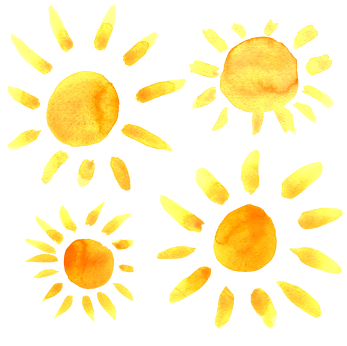
Greenhouse gasses are gasses are in the earth’s atmosphere that collect heat and light from the sun. With too many greenhouse gasses in the air, the earth’s atmosphere will trap too much heat and the earth will get too hot. As a result people, animals, and plants would die because the heat would be too strong.
What causes global warming?
Many things cause global warming. One thing that causes global warming is electrical pollution. Electricity causes pollution in many ways, some worse than others. In most cases, fossil fuels are burned to create electricity. Fossil fuels are made of dead plants and animals. Some examples of fossil fuels are oil and petroleum. Many pollutants (chemicals that pollute the air, water, and land) are sent into the air when fossil fuels are burned. Some of these chemicals are called greenhouse gasses.
We use these sources of energy much more than the sources that give off less pollution. Petroleum, one of the sources of energy, is used a lot. It is used for transportation, making electricity, and making many other things. Although this source of energy gives off a lot of pollution, it is used for 38% of the United States’ energy.
Some other examples of using energy and polluting the air are:
- Turning on a light
- Watching T.V.
- Playing a video game
- Washing or drying clothes
- Heating a meal in the microwave
- Using an air conditioner
- Using a hair dryer
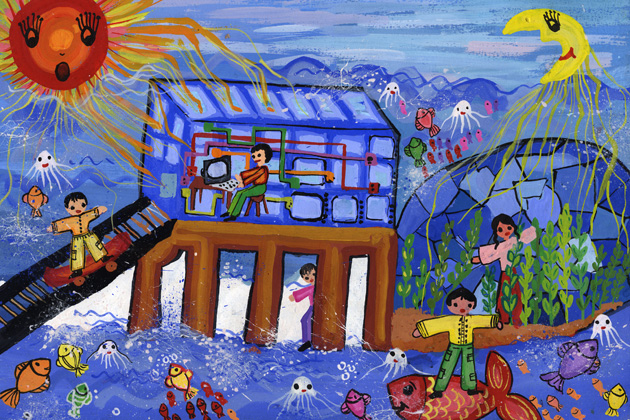
When you do these things, you are causing more greenhouse gasses to be sent into the air. Greenhouse gasses are sent into the air because creating the electricity you use to do these things causes pollution. If you think of how many times a day you do these things, it’s a lot. You even have to add in how many other people do these things! That turns out to be a lot of pollutants going into the air a day because of people like us using electricity. The least amount of electricity you use, the better.
When we throw our garbage away, the garbage goes to landfills. Landfills are those big hills that you go by on an expressway that stink. They are full of garbage. The garbage is then sometimes burned. This sends an enormous amount of greenhouse gasses into the air and makes global warming worse.
Another thing that makes global warming worse is when people cut down trees. Trees and other plants collect carbon dioxide (CO2), which is a greenhouse gas.
Carbon dioxide is the air that our body lets out when we breathe. With fewer trees, it is harder for people to breathe because there is more CO2 in the air, and we don’t breathe CO2, we breathe oxygen. Plants collect the CO2 that we breathe out, and they give back oxygen that we breathe in. With less trees and other plants, such as algae, there is less air for us, and more greenhouse gases are sent into the air. This means that it is very important to protect our trees to stop the greenhouse effect, and also so we can breathe and live.
